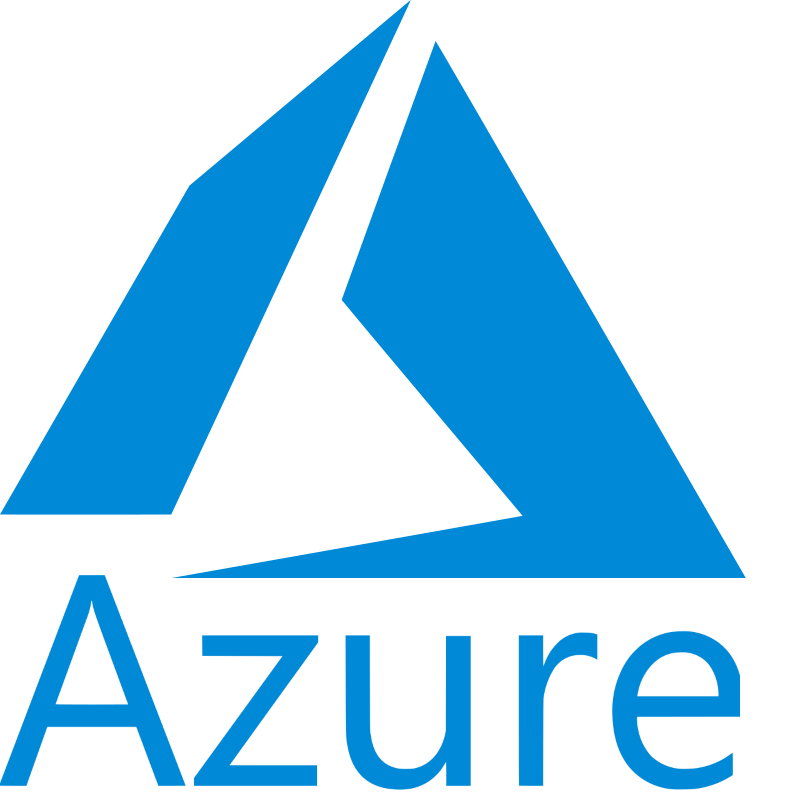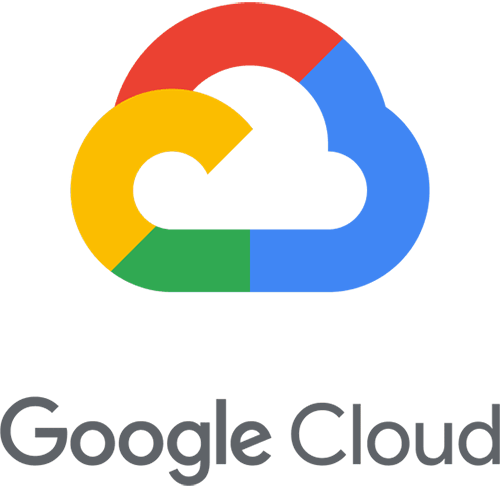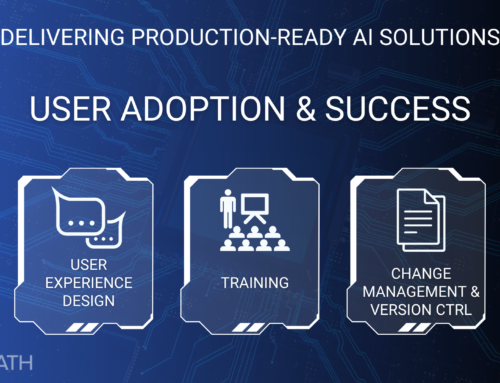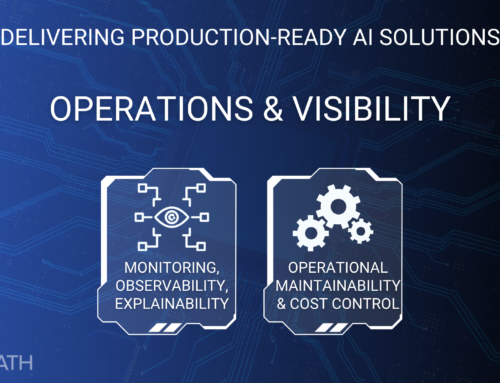Many (most) Machine Learning deployments will touch the cloud at some point, especially enterprise deployments. So we put together this article to compare and contrast three of the big cloud provides related to their services in Machine Learning, MLOps, and GenAI categories.
AWS offers a comprehensive suite of tools and services for machine learning (ML), generative AI (GenAI), and MLOps, anchored by Amazon SageMaker. SageMaker supports the entire ML lifecycle, from data preparation and model development to deployment and monitoring, with features like AutoML, hyperparameter tuning, and scalable endpoints. AWS also provides Bedrock, which allows organizations to leverage large foundation models for GenAI applications, including models for text generation, image creation, and more. With SageMaker Pipelines, MLOps practices are streamlined, allowing teams to automate and manage workflows, ensuring efficient CI/CD for ML models. AWS is known for its flexibility, scalability, and extensive integrations with other AWS services, making it a strong choice for enterprises looking to build and deploy AI solutions at scale.
Azure provides a robust ecosystem for machine learning (ML), generative AI (GenAI), and MLOps through its integrated Azure Machine Learning platform. It supports end-to-end ML workflows with tools for data preparation, model training, deployment, and monitoring, offering AutoML for ease of use and advanced hyperparameter tuning for optimization. Azure's OpenAI Service enables access to state-of-the-art GenAI models, such as GPT-4 and DALL-E, allowing organizations to leverage these models for text generation, coding assistance, and creative tasks. With Azure ML Pipelines and deep integration with Azure DevOps, Azure facilitates streamlined MLOps processes, enabling continuous integration and deployment (CI/CD) of models while ensuring scalability, security, and compliance in enterprise environments.
Google Cloud excels in machine learning (ML), generative AI (GenAI), and MLOps with its Vertex AI platform, which unifies the entire ML lifecycle—from data preparation to model deployment and monitoring. Vertex AI offers AutoML, custom model training, and optimized support for frameworks like TensorFlow and PyTorch. For GenAI, Google Cloud provides cutting-edge models like PaLM and BERT through its Generative AI Studio, enabling seamless text, image, and chat generation. MLOps is streamlined with Vertex AI Pipelines, integrated Kubeflow, and Google's robust CI/CD tools like Cloud Build, ensuring efficient model management, versioning, and deployment. Google Cloud stands out for its scalability, high-performance infrastructure (GPUs/TPUs), and advanced AI capabilities, making it ideal for enterprises seeking innovative AI solutions.
Side by Side Comparison
| Category | AWS | Azure | Google Cloud |
|---|---|---|---|
| Data Preparation | – AWS Glue for ETL – Amazon S3 for scalable data storage and integration – AWS Data Wrangler for simplifying data processing in notebooks |
– Azure Data Factory for ETL – Azure Blob Storage for data storage – Azure Synapse Analytics for big data and integrated analytics workflows |
– BigQuery for data warehousing – Cloud Dataflow for stream/batch data processing – Data Fusion for ETL with a drag-and-drop UI |
| Model Development and Training | – Amazon SageMaker supports AutoML (SageMaker Autopilot), distributed training, and hyperparameter tuning – Pre-built notebooks and integration with frameworks like TensorFlow and PyTorch – SageMaker JumpStart for GenAI model fine-tuning |
– Azure Machine Learning with AutoML and hyperparameter tuning – Integration with frameworks like TensorFlow, scikit-learn, and PyTorch – Azure OpenAI Service for leveraging pre-trained GenAI models like GPT |
– Vertex AI for unified model training and AutoML – Optimized for TensorFlow and supports PyTorch – Generative AI Studio for using and fine-tuning large language models like PaLM and BERT |
| Model Deployment | – Amazon SageMaker for deploying models as scalable endpoints – SageMaker Neo for model optimization across edge devices – Lambda and ECS for serverless model hosting |
– Azure ML for deployment on cloud or on-prem – AKS (Azure Kubernetes Service) for containerized model hosting – Azure Functions for serverless deployment |
– Vertex AI for one-click deployment of models – Cloud Run for serverless deployment – AI Infrastructure for hosting on TPU or GPUs for GenAI use cases |
| Model Monitoring and Management | – SageMaker Model Monitor for automated model drift detection and bias detection – Amazon CloudWatch for metrics and logging |
– Azure Monitor integrated with Azure ML for model performance and drift detection – Model management using Azure DevOps |
– Vertex AI Model Monitoring for drift detection, anomaly detection, and logging – Integrated with Cloud Monitoring for alerts and logging |
| Generative AI (GenAI) Offerings | – SageMaker JumpStart provides access to pre-trained GenAI models (GPT, T5, etc.) for fine-tuning – Bedrock for scalable GenAI with foundation models from AWS and third-party providers |
– Azure OpenAI Service provides access to models like GPT-3, Codex, and DALL-E, with options for fine-tuning – Cognitive Services for pre-built NLP, vision, and speech models |
– Vertex AI Generative AI Studio for using and fine-tuning Google's LLMs like PaLM and BERT – GenAI API allows seamless integration of models for text, image, and chat generation |
| ML Lifecycle Management (MLOps) | – Amazon SageMaker Pipelines for CI/CD workflows – CodePipeline for continuous integration and delivery of ML models – SageMaker Feature Store for feature management |
– Azure Machine Learning Pipelines for managing ML workflows – Azure DevOps integration for CI/CD in ML models – Azure ML Managed Endpoints for simplified endpoint management |
– Vertex AI Pipelines for orchestrating workflows – CI/CD integration with Cloud Build and Kubeflow Pipelines – Feature Store to manage and reuse features in production |
| Scalability and Pricing | – Highly scalable with access to a broad array of instance types (e.g., EC2, SageMaker Instances, GPUs, and Inferentia) – Flexible pricing with on-demand, reserved, and spot instances |
– Scalable compute with access to VMs, GPUs, and Azure Kubernetes Service (AKS) – Pricing flexibility with options for reserved instances and spot pricing |
– Highly scalable infrastructure with GPU/TPU support for training and inference – BigQuery ML for scalable analytics integration with ML at lower costs |
| Security and Compliance | – AWS IAM, KMS, and SageMaker for secure access control, encryption, and compliance – Extensive security certifications (HIPAA, GDPR, etc.) |
– Azure Active Directory (AAD) for access control and identity management – Azure Key Vault for secret management and Azure Security Center for compliance |
– Google Identity and Access Management (IAM) for secure role-based access – Data encryption by default with extensive compliance (HIPAA, GDPR, etc.) |
Key Takeaways
- Data Preparation:
- AWS focuses on flexible data wrangling tools like Glue and S3, with Wrangler simplifying data processing.
- Azure integrates well with Synapse Analytics and Data Factory for large-scale data integration.
- Google Cloud excels with BigQuery for real-time data analytics and ETL tools like Dataflow and Fusion.
- Model Development & Training:
- AWS offers a comprehensive platform with SageMaker for distributed training and AutoML, with access to pre-trained GenAI models via SageMaker JumpStart.
- Azure has a strong GenAI offering through Azure OpenAI Service and supports AutoML via Azure ML.
- Google Cloud provides seamless model training through Vertex AI, with deep optimization for TensorFlow and the latest generative models like PaLM.
- Model Deployment:
- AWS stands out with SageMaker's scalable endpoints and Neo for edge optimization.
- Azure offers flexibility with AKS and Azure Functions for cloud and serverless deployments.
- Google Cloud has strong serverless capabilities with Cloud Run and deep integration with GPUs and TPUs for GenAI workloads.
- Monitoring and MLOps:
- AWS has a mature pipeline setup with SageMaker Pipelines, Model Monitor, and integration with CI/CD services like CodePipeline.
- Azure has robust MLOps pipelines with Azure DevOps, Azure Pipelines, and integrated monitoring tools.
- Google Cloud provides Vertex AI Pipelines and seamless integration with Kubeflow for advanced workflows and model monitoring.
- Generative AI:
- AWS offers access to pre-trained models and third-party GenAI tools via Bedrock and SageMaker JumpStart.
- Azure shines with Azure OpenAI Service, providing access to cutting-edge models like GPT-4, Codex, and DALL-E.
- Google Cloud leads in generative AI with Vertex AI Generative AI Studio, offering advanced models like PaLM and BERT with intuitive fine-tuning capabilities.
Conclusion
Each cloud provider offers powerful machine learning and generative AI capabilities, but the best choice depends on your specific requirements:
- AWS excels in flexibility and extensive MLOps infrastructure.
- Azure offers seamless integration with its GenAI offerings and strong enterprise services.
- Google Cloud is leading in GenAI innovation and is highly optimized for deep learning workloads, especially with tools like Vertex AI.
Many enterprises already have a presence in one or more of the big cloud providers. Deploying an ML or GenAI model with enterprise-readiness (eMLOps) often means designing a solution that takes advantage of the strengths of the particular cloud platform(s) used by the organization, while overcoming the weaknesses through additional integrations or services.








